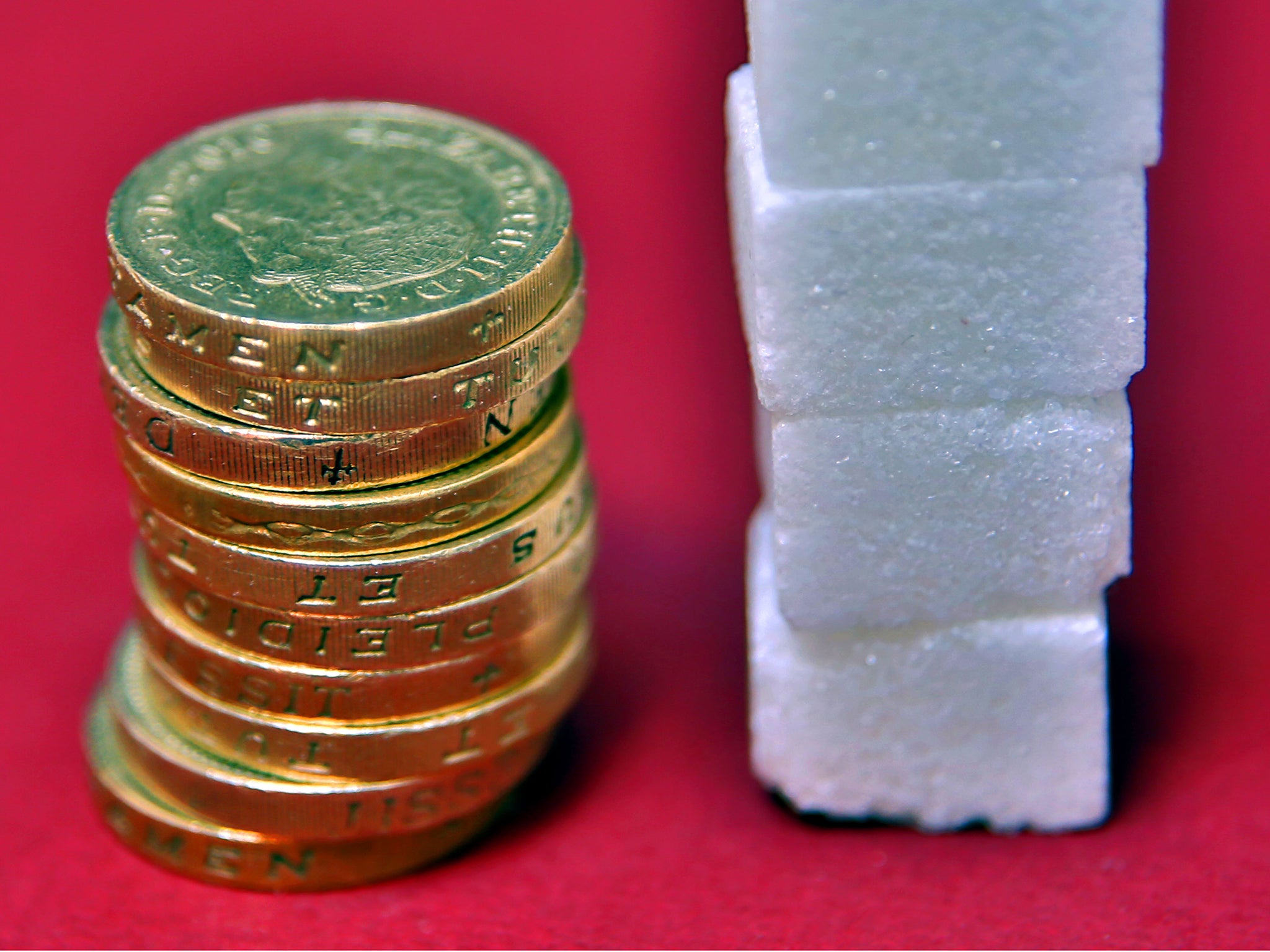Sugar tax: UK businesses claim levy will result in job losses and higher prices
The group of businesses represents 400,000 people across several sectors

A group of UK businesses, from convenience stores to vending machine operators and pubs, have joined forces to call for a rethink of the government’s proposed tax on the soft drinks industry.
Former chancellor George Osborne has announced a sugar tax on the soft drinks industry as part of the 2016 Budget with the goal to raise an estimated £520 million a year. He has pledged to spend the money on funding for sport in primary schools.
The coalition of UK businesses, which between them, employ more than 400,000 people across the UK, on Tuesday, launched a “Face the Fact, Can the Tax campaign” arguing the tax will not reduce obesity and would results in job losses and higher prices.
Businesses taking part in the campaign all agreed that obesity levels were too high, but argued that the sugar tax was not the answer.
“We know from the evidence around the world where they’ve tried a tax that it will not make a difference to obesity. What it will do, as this report shows, is damage thousands of businesses across the entire soft drinks supply chain, from farmers, to manufacturers, to convenience stores and the pub and restaurant trade,“ Gavin Partington, director-general of the British Soft Drinks Association which part funds the campaign, said.
“At a time of economic uncertainty the Government needs to be supporting these businesses and working with industry to support actions that are already making a difference, such as reformulation, smaller packs, and more marketing of the many no sugar options now available,” he added.
Leendert Den Hollander, vice-president and general manager of Coca-Cola, previously said in an interview at Retail Week that a sugar tax would not reduce childhood obesity.
“We just believe there’s no proof or evidence that sugar tax works. There’s no evidence that calories significantly reduce after sugar tax,” Mr Hollander said.
The launch of the campaign comes as a new report from Oxford Economics has highlighted the worrying economic damage the proposed soft drinks tax will have on British industry.
The report predicts a loss of more than 4,000 jobs across the UK and a decline of £132 million in economic output.
Brigid Simmonds OBE, chief executive, British Beer & Pub Association, said the new tax will further increase the burden of taxation on pubs.
“With research from Oxford Economics showing up to 1,800 jobs in the pub and restaurant sector alone are at risk from this tax, the Government should think again about this unnecessary burden on our nation’s pubs,” she said.
Companies will be given two years to reformulate their products with reduced sugar levels, after which drinks with over 5g of sugar per 100ml and over 8g per 100ml will be hit with greater taxes in two bands, following Geroge Osborne’s announcement in March
Britvic, the owner of Pepsi, Robinsons squash and Fruit Shoot, is already planning to make further changes to the recipe of its drinks to comply with the UK sugar tax.
In February, Cancer Research UK and the UK Health Forum have previously calculated that a 20 per cent tax on sugary drink could reduce obesity rate in the UK by 5 per by 2025.
The amounts of sugar in food and drink
Show all 6This is equal to 3.7 million fewer obese people - the combined populations of Birmingham, Leeds, Sheffield, Manchester, Bristol and Leicester.
Malcolm Clark, co-ordinator of the Children’s Food Campaign, called the sugar tax an “important victory” for children's health which will encourage people to choose healthier drinks, and send a wider message about cutting down on sugar for consumers and businesses.
The Institute for Fiscal Studies has warned the tax could lead to people consuming more sugar as they turn to foods instead.
Subscribe to Independent Premium to bookmark this article
Want to bookmark your favourite articles and stories to read or reference later? Start your Independent Premium subscription today.

Join our commenting forum
Join thought-provoking conversations, follow other Independent readers and see their replies